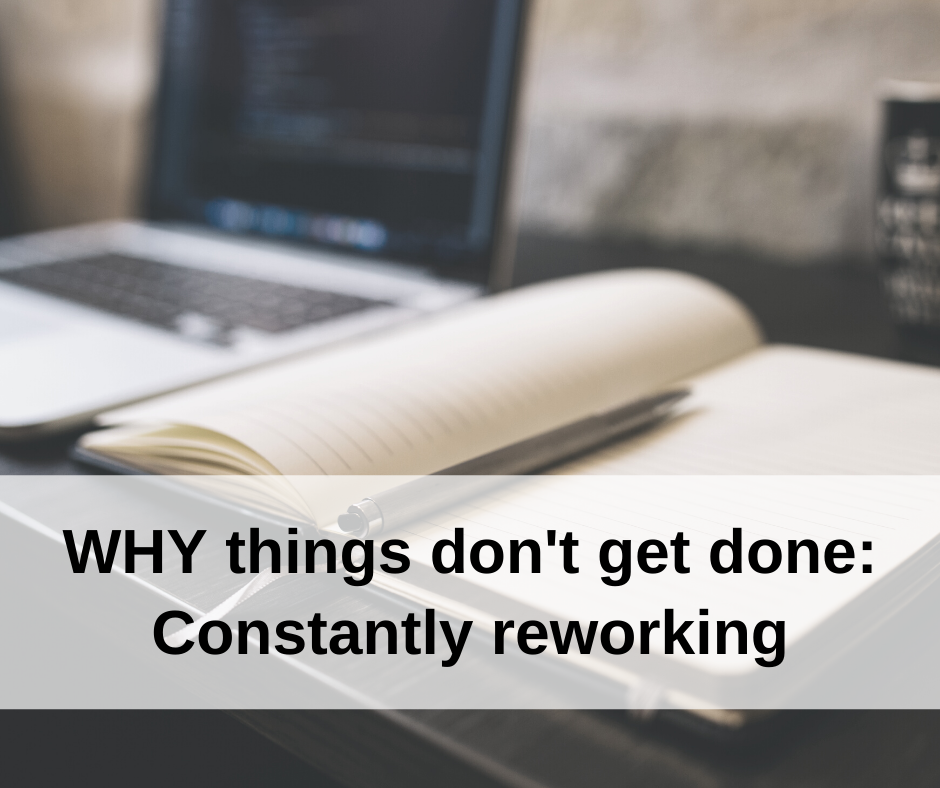Welcome to Part 4 in the WHY things don’t get done series. (Part 1, Part 2, Part 3)
Today we’re talking about Constantly Reworking.
This can come in several forms, and we’re going to talk about the main 2:
- Productive Procrastination
- Perfectionism
Productive Procrastination
Productive procrastination is when you avoid the important things that need to be done, but you get a bunch of other less important tasks done. So it feels really great because you made all this progress, but you didn’t get the really important thing done.
In the context of constantly reworking, it might feel like you ARE doing the most important task, but if you take a step back, you realize you’re doing this project to avoid the projects that will move your business forward.
An example of this is from several years ago when I put a lot of time and effort into reworking and tweaking my website (and some other things). Later, when I took a step back, I realized I was doing this to avoid learning the things that would have really made a difference for my business at the time.
To look out for productive procrastination, ask yourself if you’re constantly reworking something as a way to procrastinate something else.
Perfectionism
The second form is perfectionism, where you tweak and adjust and edit something until it’s PERFECT before you declare it done and move on or release it to the world.
I’m reminded of something I heard on a podcast several years ago. He realized that he and his team spent 80% of their time completing the last 20% of a project. They spent a lot of time reworking things after they started marketing. So what would happen is they’d complete the project and get all their marketing created and then spend a lot of time tweaking things after they started marketing it.
Instead, they started promoting and marketing things when it was 80% done. That allowed them to adjust their marketing and the final program or service based on the feedback, questions, and interest (or lack thereof). It saved them time because they weren’t perfecting things that they’d change later, AND they had happier customers. Plus, they spent much less time in perfection mode.
Notice when you’re caught in constantly reworking something. Take a step back and review if it’s something that actually needs to get done, or maybe it’s done enough as it is.
We’re at the end of the first quarter, so this is a great time to take a step back to review and make adjustments for the second quarter.
Next week in the WHY things don’t get done series, we’ll discuss overcomplicating things.
If you prefer listening/watching, you can catch this on YouTube or in my free FB group.

